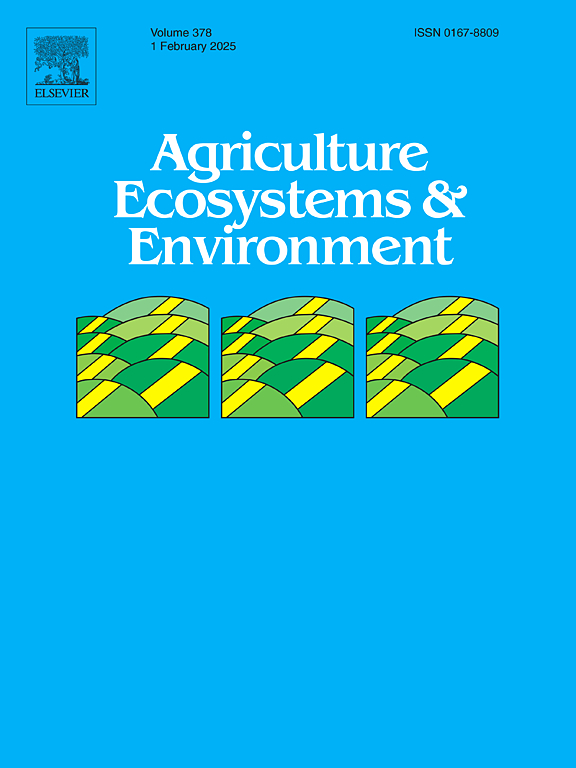The vital role of pollination services in seed production: A global review
IF 6
1区 农林科学
Q1 AGRICULTURE, MULTIDISCIPLINARY
引用次数: 0
Abstract
Animal pollinators play a fundamental role in the reproductive processes of both wild and cultivated plants, impacting global agriculture. In the face of global declines in biodiversity, especially in insect biodiversity, this study reviews the critical role of pollination services in the seed production of food crops. While previous reviews assess the influence of pollinators on primary food production, this review extends it to seed production, an essential precursor in the agricultural supply chain. Here we add to the existing body of literature by reviewing the dependence on pollination services in seed production of major crops that are propagated via seeds. Out of the 74 crops analyzed, 17 depend essentially on pollinators, 22 are highly dependent, 8 moderately dependent, whereas 1 shows little dependence and 6 no dependence at all. For 20 crops no conclusive data has been found. Globally significant crops, such as carrots and various clover species, are among the identified pollinator-dependent species. Moreover, some of the crops do not rely on pollinators for primary production, and are thus potentially overlooked in assessments that focus solely on fruit yields. Lastly, we highlight the importance of analyzing the effect that pollinators have on different yield components, the economic value of pollinators in seed production, and the need for further research on the contribution of pollinators to seed production.
传粉服务在种子生产中的重要作用:全球综述
动物传粉者在野生和栽培植物的繁殖过程中发挥着重要作用,影响着全球农业。面对全球生物多样性,特别是昆虫生物多样性的下降,本研究综述了授粉服务在粮食作物种子生产中的关键作用。虽然以前的综述评估了传粉媒介对初级粮食生产的影响,但本综述将其扩展到农业供应链中必不可少的前体种子生产。在这里,我们通过回顾主要作物通过种子繁殖的种子生产对授粉服务的依赖来补充现有的文献。在分析的74种作物中,17种主要依赖传粉媒介,22种高度依赖,8种中等依赖,1种依赖性较低,6种完全不依赖。20种作物没有找到确凿的数据。全球重要作物,如胡萝卜和各种三叶草,都是已确定的依赖传粉媒介的物种。此外,一些作物不依赖传粉媒介进行初级生产,因此在仅关注果实产量的评估中可能被忽视。最后,我们强调了分析传粉媒介对不同产量构成的影响、传粉媒介在种子生产中的经济价值以及进一步研究传粉媒介对种子生产的贡献的必要性。
本文章由计算机程序翻译,如有差异,请以英文原文为准。
求助全文
约1分钟内获得全文
求助全文
来源期刊

Agriculture, Ecosystems & Environment
环境科学-环境科学
CiteScore
11.70
自引率
9.10%
发文量
392
审稿时长
26 days
期刊介绍:
Agriculture, Ecosystems and Environment publishes scientific articles dealing with the interface between agroecosystems and the natural environment, specifically how agriculture influences the environment and how changes in that environment impact agroecosystems. Preference is given to papers from experimental and observational research at the field, system or landscape level, from studies that enhance our understanding of processes using data-based biophysical modelling, and papers that bridge scientific disciplines and integrate knowledge. All papers should be placed in an international or wide comparative context.
 求助内容:
求助内容: 应助结果提醒方式:
应助结果提醒方式:


